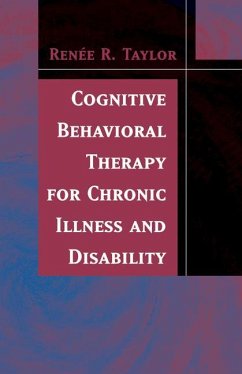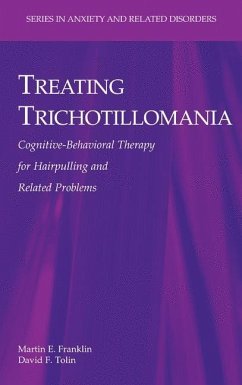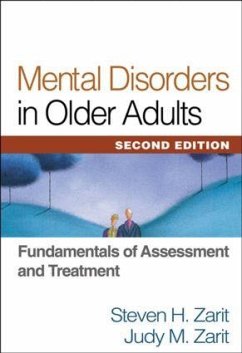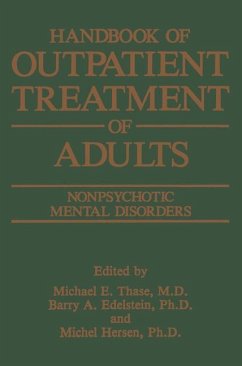
Handbook of Behavioral and Cognitive Therapies with Older Adults

PAYBACK Punkte
76 °P sammeln!
The purpose of this book is to disseminate "best practice" models of treatment for the common mental health problems of late life, so that evidence-based practice will become the norm (rather than the exception) when working clinically with older adults. Each chapter contains reviews of the empirical literature focusing on studies conducted with elders; then they emphasize how CBT can be applied most effectively to that specific patient population. Case studies illuminate practice recommendations, and issues of diversity are likewise highlighted whenever possible.
It gives me great pleasure to witness continued growth in the application of cognitive and behavioral theories and therapies to more diverse populations - including, in this volume, their application to the mental health problems of later life. Evidence continues to accumulate, demonstrating that these are effective in treating a broad range of elderly patient groups. This is the first book to examine a number of these evidence-based interventions currently in use with older adults. The editors have assembled chapters developed in many of the leading clinical and clinical research programs focusing on elderly patients, both in this country and in the UK. Since the emphasis of this volume is primarily on clinical appli- tion, each author group was asked to discuss the empirical data for the treatment strategies it is using with the specific patient group selected. Typically, this was followed by a detailed description of treatment procedures that were then ill- trated by one or more clinical examples. The book begins by examining the treatment of depressive and anxiety dis- ders and then moves on to more complicated and/or serious disorders, including schizophrenia and other psychoses, suicidal behavior, personality disorders, bipolar disorders, dementia, and complicated bereavement. A chapter on the problems and issues in training therapists to use evidence-based interventions effectively is also included, along with a chapter discussing the implications of Medicare policies and guidelines for service delivery.













